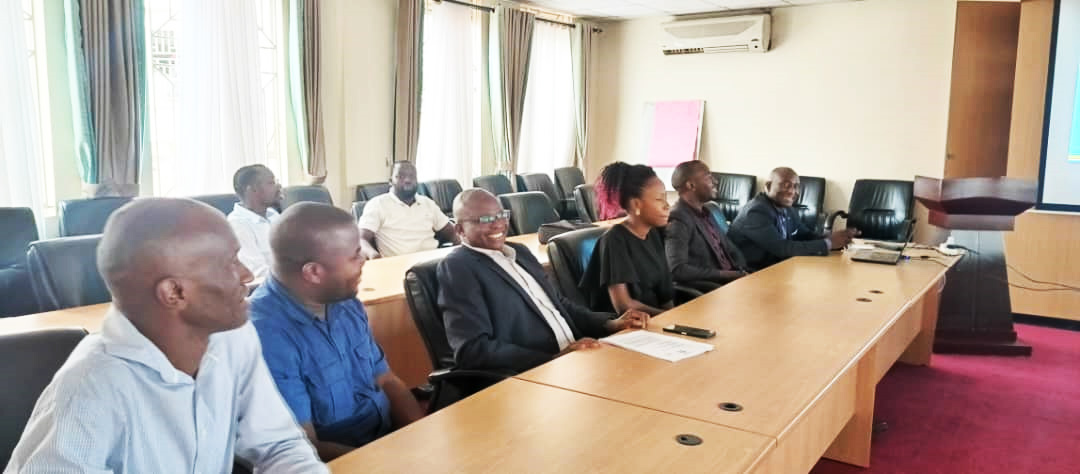A team from the East African Community (EAC) recently led a three day workshop on sustainable electronic waste (e-waste) management at Makerere University’s School of Statistics and Planning (SSP). This workshop is part of a broader initiative aimed at improving environmental management practices throughout the East African region. The goal was to equip university staff with the necessary skills and knowledge for handling and disposing of e-waste responsibly.
The workshop commenced with remarks from Prof. James Wokadala, the Deputy Principal of the College of Business and Management Sciences and Dean of the SSP. He expressed gratitude to the EAC team, led by Mr. Dismas Mwikila, for sharing valuable insights with Makerere University staff. Prof. Wokadala emphasized the importance of e-waste management, highlighting the need for public awareness regarding proper disposal methods for electronic waste.
Prof. Wokadala stated, “E-waste is becoming a growing concern as more electronic devices are being used and discarded. Without proper disposal methods, hazardous substances like lead, mercury, and cadmium, often found in electronic equipment, can cause significant harm to both human health and the environment.” He noted that this training is timely, given the increasing use of electronic devices in Uganda and the broader East African region. He also expressed hope that similar training workshops would be extended to other colleges within the university to ensure comprehensive coverage of this critical issue.
This workshop is part of the EAC’s Electronic Waste Management Plan (E-Waste MP), developed to tackle the escalating problem of electronic waste across its member states, which include Uganda, Kenya, Tanzania, Rwanda, Burundi, South Sudan, and the Democratic Republic of Congo (DRC). The EAC’s environmental and social commitment plan underscores that managing e-waste is vital for protecting the environment and safeguarding human health. The EAC advocates for sustainable e-waste management practices, including recycling and proper disposal, to mitigate the harmful effects of toxic materials found in electronic products.
During the workshop, participants learned about best practices for disposing of electronic waste, including recycling and recovery techniques to extract valuable materials from discarded devices. These practices help minimize the release of toxic substances into the environment and recover valuable resources for reuse.
Prof. Wokadala further expressed appreciation for the EAC’s support to the SSP, noting the recent donation of 160 computers, laptops, printers, and other ICT equipment worth $0.5 million from the EAC. This donation aims to enhance the school’s technological capabilities, supporting its mission to provide high-quality education and research in the field of statistics and planning. Additionally, the EAC has allocated funding for staff training in Data Analytics, a crucial area for future research and decision-making in the digital era.
Mr. George Magala, from the Ministry of EAC Affairs Uganda, also highlighted the significance of sustainable e-waste management practices not only in educational institutions but across all sectors of the economy.
Mr. Mwikila explained that e-waste is one of the fastest-growing waste streams globally, increasing at a rate of 3-5% per year. This growth is attributed to the rising use of electronic devices and their shorter life cycles. He cautioned that without sustainable e-waste management practices, East African countries could face significant environmental and health challenges. Proper e-waste management not only mitigates harmful impacts on the environment but also creates economic opportunities through the recovery of valuable materials such as copper, aluminum, and gold from discarded electronics.
The workshop concluded with a call to action for universities and other institutions in Uganda and the wider East African region to embrace sustainable e-waste management practices. The EAC reaffirmed its commitment to providing technical assistance and capacity building initiatives to help institutions manage e-waste responsibly and sustainably.




















